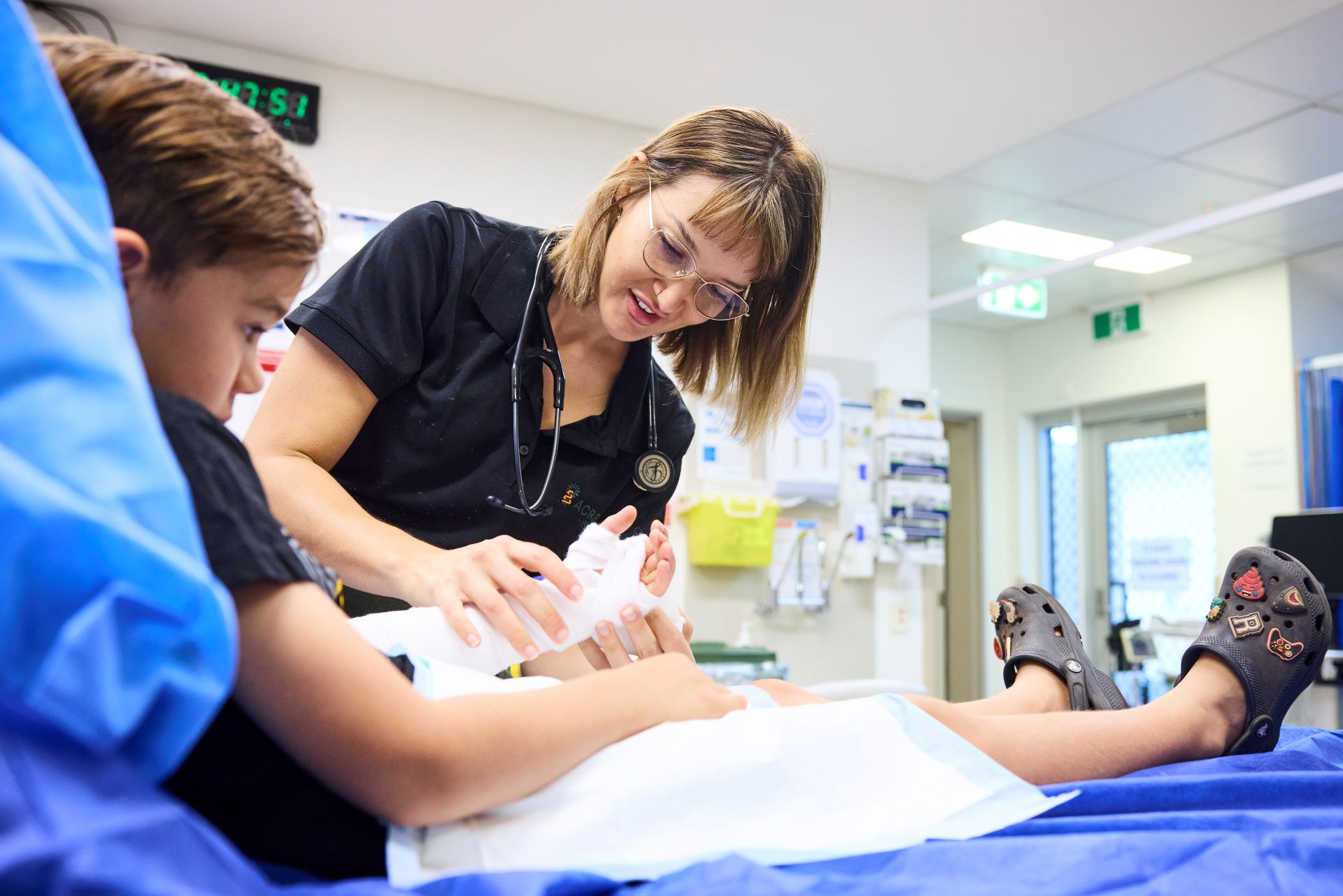My name is Dr Julia-Rose Satre, a proud Yawuru woman. I’ve had the privilege of growing up in both Broome WA (Rubibi Country) and Cairns, FNQ (Gimuy country). I now live and work in Cape York as a Rural Generalist registrar, walking alongside remote communities to deliver healthcare that is grounded in respect, cultural safety, and connection to Country.
Growing up in regional and remote areas, I saw the heartbreaking effects of health inequity on my own family. I also saw the strength of those who cared for my family – healthcare workers who showed up with skill, compassion, and commitment. They inspired me to pursue a path where I could give back and help change the system from the inside.
I’m now working towards finishing my ACRRM training and hope to gain advanced skills in obstetrics. My goal is to support Aboriginal and Torres Strait Islander women to birth safely, on or close to Country, where culture and kin can surround them, while having access to a female doctor for women’s business topics.
This year’s NAIDOC Week marks 50 years of honouring Aboriginal and Torres Strait Islander strength, sovereignty, and survival. The theme, “The Next Generation: Strength, Vision & Legacy”, holds deep meaning for me – not only as a Yawuru woman, but as a doctor working on Country in Cape York, walking between two worlds every day with purpose and pride.
I want to continue growing not just as a clinician, but as someone who listens deeply to what community needs. My vision is to keep learning, keep showing up, and develop the skills that fill in the gaps that have existed for too long in rural and remote healthcare.

Legacy
The legacy I carry comes from strong women – especially my Nana and my sisters, who raised me with love, discipline, and deep cultural values. They taught me to be proud of who I am, to listen deeply, and to stand strong for what’s right. As an Aboriginal health professional, I honour this legacy by bringing culture into my everyday work. I yarn with patients, advocate for change, and hold space for community. My nana’s teachings guide me in every decision I make – from how I treat patients, to how I carry myself in difficult systems.
Their legacy is living through me – not just in what I achieve, but in how I walk.
Strength
My strength comes from culture. Our values – kinship, respect, community care – are the same values that make a great doctor. They’ve kept me grounded throughout the challenges of medicine.
In Cape York, I see strength and resilience in my community every day – in Elders showing up to appointments with dignity, in young people finding hope despite hardship. Our people have always adapted, survived, and continued to care for each other, even when the system fails us.
Being an Aboriginal doctor means using my voice to push for more than just clinical care – it means holding space for cultural safety, truth-telling, and healing that goes beyond medicine.
Vision
My vision for the future of healthcare is one where First Nations leadership is central, not tokenistic. Where birthing on Country, language in clinics, and Elders in decision-making are the norm – not the exception.
We need systems built with us, not just for us. Cultural safety should be embedded from the start, not added at the end. For ACRRM, that means listening to First Nations voices, investing in our training and development, and creating space for us to lead.
I want to see our ways of healing honoured, and our communities given the resources to thrive – not just survive.
The next generation
To young mob thinking about a career in rural generalism – you belong here. Your lived experience, your cultural knowledge, your resilience – these are your strengths. Don’t ever feel you have to leave your identity behind to succeed.
My vision is not just about clinical care, but about cultural safety, equity, and voice. It’s about dismantling systems that were never built for us, and rebuilding them with Country, kinship, and culture at the core.
I support the next generation by showing up – as a mentor, as an aunty, as a living example of what’s possible. I share my story, offer guidance, and most importantly, I listen.
What gives me hope is our young people – proud, strong, and unafraid to speak up. They are our future doctors, nurses, midwives, leaders, and healers. And I know our legacy is safe in their hands.
This is what NAIDOC means to me: a deep breath in the middle of our ongoing struggle, where we pause to celebrate, remember, and recommit.
To Country.
To kin.
To culture.
To future generations who will carry the torch long after we’re gone.


